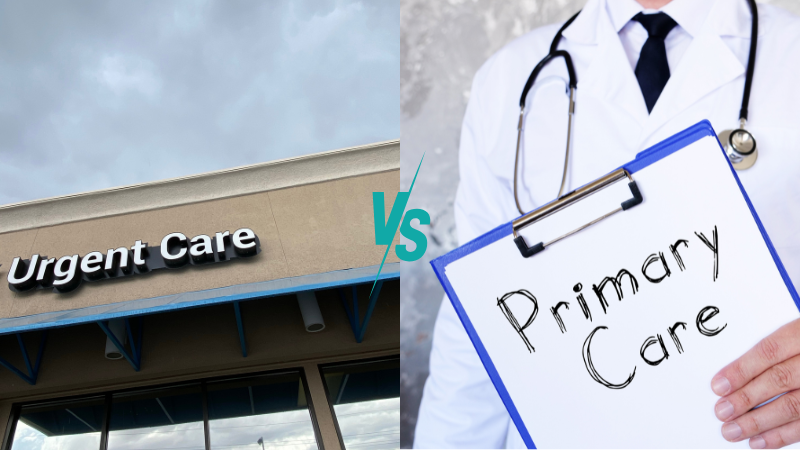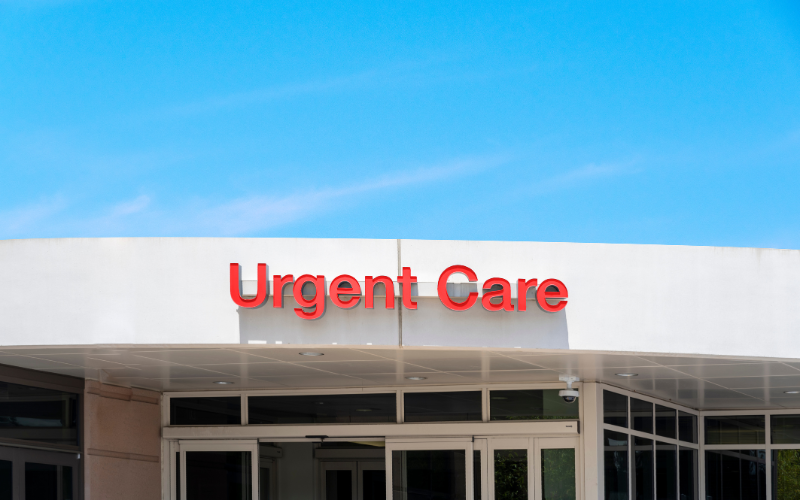
In today’s fast-paced world, healthcare needs aren’t always neatly scheduled. That’s where urgent care centers step in, offering a vital bridge between primary care and emergency rooms. This introduction explores these centers’ wide spectrum of services, ensuring prompt and efficient medical attention for a diverse range of non-life-threatening conditions. Whether you’ve sprained an ankle, require a quick flu shot, or need stitches for a minor cut, urgent care centers are designed to promptly address a multitude of medical needs. Join us as we delve into the versatile world of urgent care, where convenience meets quality healthcare.
Common Services Offered
1. Treatment for Minor Injuries:
– Urgent care centers are equipped to provide prompt treatment for various minor injuries. These can include sprains, strains, minor fractures, and lacerations.
– Urgent care staff may provide pain relief, apply braces or splints, and offer guidance on rest and rehabilitation exercises for sprains and strains.
– In minor fractures or dislocations, they can often perform splinting or provide temporary stabilization until further evaluation can be arranged.
– For cuts and lacerations, urgent care centers can clean and disinfect wounds, suture or staple them as needed, and provide tetanus shots if required.
2. Treatment for Common Illnesses:
– Urgent care centers offer diagnosis and treatment for various common illnesses. This includes conditions like colds, flu, sinus infections, urinary tract infections (UTIs), and respiratory infections.
– Healthcare providers at urgent care facilities can conduct physical examinations and order diagnostic tests, such as throat swabs and lab work, to determine the cause of the illness.
– Once diagnosed, they can prescribe appropriate medications, such as antibiotics or antivirals, and provide recommendations for managing symptoms.
– Patients with chronic conditions like asthma or allergies can receive treatment and prescriptions for ongoing management.
Treatment for Minor Injuries
1. Prompt Evaluation and Diagnosis:
– When you visit an urgent care center for a minor injury, the healthcare providers will promptly evaluate your condition. This includes conducting physical examinations and, if necessary, ordering diagnostic tests like X-rays.
– The goal is to accurately diagnose the extent of the injury, whether it’s a sprain, strain, minor fracture, or other minor injury. Quick diagnosis is crucial for initiating appropriate treatment.
2. Treatment and Care:
– Urgent care staff will provide immediate treatment and care once the injury is diagnosed.
– For sprains and strains, they may recommend rest, ice, compression, and elevation (RICE) and provide braces or splints as needed.
– In cases of minor fractures or dislocations, they can perform temporary stabilization or splinting until further evaluation with an orthopedic specialist, if required.
– For cuts and lacerations, healthcare providers will clean and disinfect the wound, suture or staple it, and provide tetanus shots if necessary. They ensure the wound is properly closed and sterile to prevent infection.
Treatment for Common Illnesses
1. Rapid Evaluation and Diagnosis:
– When you visit an urgent care center for a common illness, healthcare providers prioritize a swift evaluation and diagnosis.
– They will conduct a thorough physical examination and may order diagnostic tests, such as throat swabs, blood tests, or imaging, to determine the cause and severity of the illness.
– This quick assessment helps identify whether the illness is due to bacterial or viral infections and guides the treatment plan.
2. Prescription of Medications and Symptom Management:
– Urgent care centers can prescribe medications to manage common illnesses effectively.
– Depending on the diagnosis, they can prescribe antibiotics for bacterial infections or antiviral medications for certain viral infections.
– Additionally, healthcare providers offer guidance on managing symptoms, including recommendations for over-the-counter medications, rest, hydration, and home care measures.
– Patients receive clear instructions on taking prescribed medications and when to follow up if symptoms persist or worsen.
Vaccinations and Preventive Care
1. Vaccinations and Immunizations:
– Urgent care centers play a vital role in providing a range of vaccinations and immunizations to patients of all ages.
– They commonly administer flu shots essential for annual influenza prevention. This service is especially valuable during flu season.
– Urgent care centers may also offer other routine vaccinations, such as pneumonia, tetanus, diphtheria, pertussis (Tdap), hepatitis B, and travel-related vaccinations.
– These services are convenient for individuals looking to stay up-to-date on their immunizations or needing specific vaccines before travel.
2. Preventive Health Services:
– In addition to vaccinations, urgent care centers often provide various preventive health services.
– This may include annual physicals or wellness check-ups, which are valuable for assessing overall health, identifying risk factors, and managing chronic conditions.
– Urgent care providers can also offer health screenings, such as cholesterol checks, blood pressure monitoring, and diabetes testing.
– Preventive care at urgent care centers helps individuals proactively manage their health and detect potential issues early.
Diagnostic Services
1. Comprehensive Diagnostic Testing:
– Urgent care centers are equipped to perform a wide range of diagnostic tests to aid in accurately diagnosing various medical conditions.
– Common diagnostic tests include blood tests, urine analysis, throat swabs, and imaging studies like X-rays.
– These tests are instrumental in determining the underlying causes of symptoms, whether they are related to infections, injuries, or other health concerns.
2. Rapid Results and Interpretation:
– Urgent care centers prioritize efficient diagnostic services to ensure timely results.
– Once tests are conducted, healthcare providers work to interpret the results promptly.
– This enables them to provide immediate care and treatment based on the findings, whether it involves prescribing medications, providing further evaluation, or offering guidance for managing the condition.
Pediatric Care
1. Child-Friendly Environment:
– Urgent care centers often create a child-friendly and welcoming environment to cater to pediatric patients.
– They have a team of healthcare providers experienced in treating children and addressing their unique healthcare needs.
– Pediatric-friendly waiting areas, colorful decor, and age-appropriate distractions like toys and books help ease anxiety and create a positive experience for young patients.
2. Treatment of Common Childhood Illnesses and Injuries:
– Urgent care centers are well-equipped to diagnose and treat many common childhood illnesses and injuries.
– This includes conditions like ear infections, sore throats, colds, flu, minor cuts and abrasions, and mild respiratory issues.
– Pediatricians or healthcare providers with pediatric experience can provide specialized care for children.
Insurance and Payment Options
1. Insurance Acceptance:
– Most urgent care centers accept various health insurance plans, including private insurance, Medicaid, and Medicare.
– Patients with insurance can typically expect their urgent care visit to be covered, with standard copayments or coinsurance applying as per their insurance plan.
– Urgent care centers often have insurance specialists who can verify coverage and assist with billing.
2. Affordable Self-Pay Options:
Urgent care centers understand that not everyone has insurance and often offer affordable self-pay options.
– Self-pay patients can expect transparent pricing for various services, including a flat fee for a specific type of visit or service.
– Many urgent care centers provide price lists for common procedures and treatments, letting patients know the cost upfront.
When to Choose Urgent Care
1. Non-Life-Threatening Emergencies:
Urgent care is an excellent choice when you have a medical issue requiring prompt attention but not a life-threatening emergency.
– Common examples include minor injuries like sprains, minor fractures, cuts requiring stitches, and non-severe burns.
– Urgent care centers are well-equipped to handle these situations quickly and efficiently.
2. After-Hours and Weekend Care:
– Urgent care is a convenient option when you require medical attention outside of regular office hours, such as evenings, weekends, or holidays.
– It provides access to healthcare professionals and diagnostic services when primary care offices are closed.
– This ensures you can receive timely care without waiting for an appointment with your primary care physician.
In conclusion, urgent care centers offer a valuable solution for individuals seeking prompt and convenient medical care for non-life-threatening conditions. They bridge the gap between primary care and emergency rooms with a broad range of services, pediatric care, and flexible hours. Choosing urgent care when appropriate ensures efficient, accessible, and cost-effective healthcare for various medical needs.





